- Home
- Simon Kernick
The Payback Page 4
The Payback Read online
Page 4
‘I did.’ She paused, then looked Weale squarely in the eye. ‘I know how bad this looks, but it wasn’t suicide. How much of Nick’s background do you know?’
‘I know about his run-in with Paul Wise. And’ – he looked uncomfortable – ‘I know about Wise’s connection to you.’
Just the mention of Paul Wise’s name filled Tina with a cold, intense rage. ‘Nick and I were looking for any evidence that could be used to reopen the case against him,’ she told Weale, seeing no point in keeping the subject of their meetings secret. She’d been warned by her superiors in the Met not to say anything publicly about Wise, nor to get involved in investigating him, on pain of dismissal, but it was going to come out soon enough anyway. ‘Nick was doing most of the digging. I was helping him when I could.’
‘How?’
‘By giving him information where he didn’t have the authority to get it himself. That kind of thing.’ She hoped Weale wouldn’t ask for details since what she’d been doing could easily cost her her job.
He nodded slowly, clearly having trouble taking this all in. ‘And had you found anything that could be used?’
She didn’t say anything for a moment. In truth, she’d been hugely disappointed by Penny’s progress. Realistically, finding evidence where organizations like the Serious Organized Crime Agency, with all its resources, couldn’t was always going to be a long shot, and the fact was he’d turned up little of use over a long period of time. In the last few weeks she’d started to give up hope, suspecting that Penny was becoming more interested in her than he was in finding evidence against Wise. With Tina, of course, it was the other way round, which was one of the reasons she’d decided to end the relationship. ‘No. We used to discuss his progress whenever we met, but it wasn’t going well. At least I thought it wasn’t.’
‘And had you spoken since the end of the affair?’
‘Yes. We spoke on the phone just over a week ago. Last Thursday.’
‘And how did he seem then?’
‘He was still upset about the fact that I’d finished things, but he’d accepted that it was over. He asked me during the call if we could get back together. I said no, and we talked about the case, and agreed to speak later this week. I’m thinking he must have found out something between times. I saw you were looking on his laptop. Is there anything on there?’
‘There’s a file entitled “The Project” in the documents section. It details his investigations into Wise’s business dealings, although it doesn’t mention him by name. It just uses the soubriquet “W”. Not exactly foolproof. It wasn’t particularly well hidden, and there wasn’t much on there that would be of any use in building a case against him.’
Tina stared down at the open laptop, wishing she was dealing with someone older, and more experienced. ‘There must be something else. Are you sure you’ve looked everywhere?’
‘I spent two years on CEOP going through the hard drives of child molesters, DI Boyd,’ he replied testily, ‘so I know what I’m looking for, and I’ve been picking apart this machine for the best part of the last hour. There’s nothing.’ He paused. ‘You’ve got to see things from my position. I find a man hanging in his office. On closer investigation, it seems he’s facing financial ruin, with a court case hanging over his head, no job, very little income, and huge debts. He owes twelve thousand pounds to various card companies and is three months behind on his mortgage payments.’ Tina opened her mouth to interrupt, but he held up a hand. ‘Added to this, the woman he’d been having an affair with had just finished it two weeks earlier, which would only have added to the pressure. And to top it all, he left three notes, all seemingly heartfelt, and all in his own handwriting. That, to me, spells suicide. And nothing you’ve said makes me change my view of that.’
‘I understand what you’re saying,’ she said, and she could as well. In his position she’d have thought exactly the same thing. ‘But Nick was investigating a man who’s not only been involved in a number of murders over the years, but who also has form in faking suicides. He had someone murder my previous boyfriend – a DI in the Met, John Gallan – six years ago and make it look like suicide, even going so far as to fake a note.’
‘But this is very different, ma’am. Nick Penny wasn’t a threat to Paul Wise. He was a disgraced journalist staring at financial and personal ruin.’
‘I knew Nick. And I can promise you now, categorically, that he wasn’t the type to commit suicide.’ But even as she spoke the words, Tina realized how hollow they must have sounded.
To be fair to Weale, he didn’t argue the point. Instead, he shrugged his broad shoulders. ‘What do you want me to do?’
‘Investigate more closely what Nick’s been doing this past week. Scour that laptop. He’d found something, I’m sure.’
‘Then, why didn’t he tell you about it? I’m sorry, ma’am, but it’ll be up to a coroner to decide whether or not this death was unlawful. Right now, I believe it was suicide, and I haven’t got the resources or the time to try to prove otherwise.’
He started to turn away, a sign that for him the interview was over, and Tina felt a sudden overpowering anger at the thought of that bastard Wise getting away with murder again because no one was competent or far-sighted enough to work out what was happening.
‘Bullshit,’ she snapped, her voice louder than she’d been expecting.
Weale gave her a look that suggested she should be careful what she said, and she took a deep breath, knowing she had to calm down. There was no point pushing things. Weale had made up his mind and he didn’t look like the sort who was going to budge. But she was convinced that Nick Penny had been murdered, and the most likely explanation was that it was over something he’d found out in the past week.
‘I’m sorry,’ she said, knowing she had to keep the big DS onside. ‘It’s not been an easy day.’
He gave her a sympathetic smile. ‘Apology accepted.’
‘Did you find his mobile phone?’ she asked him.
‘Yes. It was in his trouser pocket.’
‘But only the one?’
Weale looked at her uncertainly. ‘According to his wife, he only owned one mobile phone.’
Tina shook her head. ‘He had two. The other was an unregistered pay-as-you-go. I bought it for him for when he was making calls to me, or calls relating to his investigation into Wise. I thought it would be a lot more secure that way, and safer for him if the calls couldn’t be traced back to his phone. It was a Motorola K1 fliptop. He used to keep it with him all the time.’
‘That wasn’t the one in his pocket.’
‘I didn’t think it would be.’ She took out her own mobile. ‘Let me call it now.’ But when she punched in the speed-dial code, an automated message told her it was switched off, and she guessed that it would remain that way for ever.
‘It doesn’t change anything,’ said Weale as she put her mobile away. ‘That phone could be anywhere.’
But as far as Tina was concerned, it changed a lot. ‘Can you do me a favour? If I give you the number of the pay-as-you-go, and the operator, can you get hold of the records for the calls made and received in the past three months and email them to me?’ There had been a time when Tina could have got that information herself but she’d bent the rules too many times in the past few years and now there was a much tighter rein on her activities. ‘Please. As a favour.’
He gave another uncertain look. ‘If anyone finds out—’
‘They won’t. I’ll just take a look at them and if there’s anything that really sticks out I’ll get back to you, and you can take it from there. If not, then I’ll shred them and that’ll be that.’
He thought about it for a couple of seconds, then nodded. ‘All right, but I’m trusting you.’
‘I’m a woman of my word,’ Tina said firmly, thinking about a promise she’d made herself a long time ago. That one day she’d sit in court watching as Paul Wise was sent down for the rest of his life. Right now, that moment felt
as far away as ever. Yet she was certain that Nick Penny had stumbled on something, and that if she could find out what it was, then once again she’d be back on his tail.
Five
The day it all went wrong for me was 11 August 1989.
That was the day I killed a man for the first time. His name was Darren Reid and he was a drug-addicted thug with a list of criminal convictions as long as my arm. He’d been holding his common-law wife and their two young children hostage at the terraced house they’d shared in Haringey, armed with a gun and a carving knife. I was part of the armed response team sent there to try to bring the situation to a peaceful conclusion. But, unfortunately, things hadn’t worked out like that. Reid had been off his head on a potent mix of speed, booze and high-strength dope and was waving the gun around erratically. I don’t know if he ever had any intention of hurting his family, but as we crouched behind our squad cars in the hot sun waiting for him to make some kind of move, stymied by the hugely strict rules that govern all armed British police operations, it wasn’t something anyone wanted to risk finding out.
And then, naked from the waist up, he’d appeared at the front window, flinging it open and shouting something slurred and unintelligible at us. He’d raised the gun and pointed it out of the window. I’d already received instructions through my earpiece telling me not to fire, but that was before the gun had been aimed in my general direction. I was pretty sure he wouldn’t hit me, his gun hand was too unsteady for that, but my nerves and my patience were frayed, and suddenly, in one epiphany-like moment, I’d had enough. There were further instructions coming through the earpiece but to this day I couldn’t tell you what they were. I wasn’t listening. I was already squeezing the trigger.
I shot him twice in the chest, killing him near enough instantly, and from that moment on, my fate was sealed. The gun turned out to be a replica; I was suspended for two months while a detailed investigation was carried out as to whether I’d been justified in my actions, with criminal charges hanging over me the whole time. Even after I was reinstated, when it was found that I had no case to answer, I was permanently removed from firearms duty, and my path up the career ladder ground to a resounding halt. Innocent I might have been of any crime, but as far as the brass were concerned there was an unpleasant aura of controversy about me that meant I was best avoided.
Before that August day I would have considered myself a good cop. No liberal idealist – I’ve never been one of them – but at least a man who cared passionately about his job and the people he was paid to protect, and who wanted to do it to the best of his ability until he was forced by age to retire.
After that, I never really recovered. Perhaps there was more self-pity in my actions than I ever would have admitted at the time, but I became progressively more cynical. The law became a subject of contempt for me, as I came to realize that it was designed to protect the rights of the criminals, not the victims. The job became a battle. Us against them. But ‘them’ wasn’t just the criminals. It was the establishment who paid my wages and made the laws, which now began to seem totally unjust. It was the bosses more interested in kissing arses and meeting quotas than in protecting their people. It was the members of the public who didn’t seem to care what was happening on the streets around them, who hurried on by when they saw crimes being committed, too cowardly to intervene. Sometimes it seemed like the ‘them’ was everyone, and the ‘us’ was simply me, a lone copper engaged in a one-man battle against the injustices of the world.
I was twice the subject of complaints by prisoners regarding my treatment of them. The first was made by a violent thug wanted for two counts of GBH who’d spat in my face during an arrest, and then made the mistake of laughing about it while wearing handcuffs. We were in his mum’s house at the time, where he’d been hiding out, and in front of four other arresting officers I’d headbutted him and broken one of his teeth.
His complaint hadn’t been upheld, but only because all five of us had stuck to the same story, that he’d injured himself trying to escape. But suspicion had still hung over me as a result, and when three years later another complaint was made against me, this one was taken very seriously by the Police Complaints Commission.
The complainant was a convicted paedophile who I’d arrested on suspicion of raping the five-year-old daughter of the woman he was living with. He’d looked so incredibly smug as I’d put him in the back of the car, claiming in smooth, educated tones that it was all a mistake and that the child was lying, that I’d got in after him, and while my colleague waited outside I’d put a hand over his mouth while simultaneously twisting his balls with such pent-up ferocity that I’d caused a rupture in one of them. He’d spent three days in hospital as a result, and although my colleague claimed to have heard and seen nothing, my story that he’d slipped while getting into the car was never going to hold up, especially as according to the doctor who treated him his injuries were entirely consistent with the type of assault he was accusing me of.
I would almost certainly have lost my job, and might even have ended up in the dock, if it hadn’t been for a man called Raymond Keen – who, after Bertie Schagel, was possibly the least likely knight in shining armour you were ever going to meet.
I’d met Raymond at a charity function some months earlier. He was a colourful, well-known and, frankly, crooked local businessman who ran a highly successful funeral parlour, but who was suspected of having his finger in a fair few less savoury pies. However, I’d found him good company, and we’d been out for a drink on a couple of occasions, even though (or perhaps because) I knew that associating with a man like him would be frowned upon. One night I told him about the complaint that had been made against me. He listened, asked me where the complainant was being held in custody, then said that he’d get it fixed.
At that time, I didn’t know the kinds of crimes that Raymond Keen was capable of, or how far his reach extended, and assumed that he was just giving me an empty promise. But a few days later, the complaint was dropped. Just like that. No reason was ever given. The cloud of suspicion remained above me, but at least I was back in the job.
And that was how Raymond and I had entered into business together. After that, it was difficult to turn down his requests for favours. Most of the time he wanted information, either for his own use or on behalf of other criminals: a warning about an impending drug bust; tips on how to find someone in the witness protection scheme. Small things, but as the years went by, they steadily grew bigger and more serious, like a slow-moving but ultimately fatal cancer, until finally one day he asked me to break the ultimate taboo and kill someone for him.
The someone in question was a particularly unpleasant businessman called Vincent Stanhope, one of whose sidelines was child pornography. Stanhope apparently owed Raymond a large sum of money, which he was refusing to pay, and Raymond had decided that to protect his underworld reputation, Stanhope was going to have to die. He was offering me ten grand cash to carry out the job.
I came very close to saying no, and I often wonder how things would have turned out if I had. I’m being honest when I say I truly never wanted to become a murderer. What made me say yes was a case we were dealing with at the time. It’s one that haunts me still, mainly because of the complete lack of any proper motive.
Tim Atkins was a perfectly ordinary, law-abiding, thirty-three-year-old local government worker. One day, he and his wife were walking along Regent’s Canal with their two young children when they came upon three young men smoking cannabis and blocking the path. Mr Atkins asked them politely to move so he could manoeuvre the youngest’s pushchair through. In answer, the biggest of the three, a complete waster, well known to us, by the name of Kyle Morris, had punched him in the face with such force that Mr Atkins had fallen straight back and struck his head on the concrete, suffering catastrophic brain injuries in the process. He never regained consciousness and died in hospital several hours later. His children, both of whom witnessed the killing of their f
ather, were two girls aged five and twenty months.
Morris hadn’t given a shit. When we’d brought him in less than twenty-four hours later and told him what had happened, he’d shrugged, said that it was nothing to do with him, and had then answered ‘no comment’ to every question we’d asked, looking far too pleased with himself, knowing he had the protection of the attractive, public-school-educated lawyer sitting next to him, who as far as I could see didn’t give a shit about what he’d done either. There was no fear of the consequences of his actions, no regret for the way he’d casually ruined so many lives, and I remember thinking then how desperate I was to kill him – to put a gun against his head, to make him beg forgiveness, and then pull the trigger – and if I couldn’t do it to him, then I wanted to do it to some other bastard who deserved it.
I was only ten minutes out of that interview when I phoned Raymond and said I’d take the job. Three nights later, I waited for Vincent Stanhope by the lock-up he sometimes used, and when he emerged from it and went to his car, I walked up behind him and, without a moment’s hesitation, put two bullets directly into the back of his head.
It felt easy at the time, but afterwards, when I got back to my poky little flat, I threw up repeatedly before going into shock as my conscience reacted to what I’d done. I didn’t sleep that night. Instead I sat up smoking and drinking, playing the killing over and over again, paranoid thoughts of being arrested by my own colleagues and spending the rest of my days in prison filling my thoughts, until finally a grey, sickly dawn broke over central London, and I threw up all over again.
That was over ten years and perhaps twice as many bodies ago now, and I don’t throw up any more when I kill someone. I’ve become hardened to it. I still like to think that the ones I take out are the bad guys, but now, whichever way I care to look at it, I am a professional killer. And as Bertie Schagel helpfully pointed out, a good one too.
And Kyle Morris? He got four years for manslaughter and was released after just two and a half.

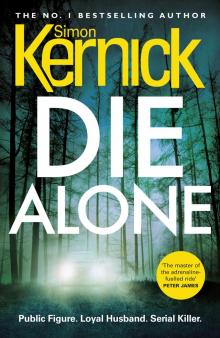 Die Alone
Die Alone Deadline
Deadline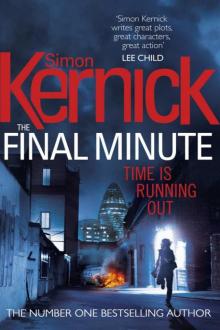 The Final Minute
The Final Minute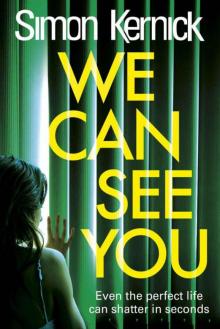 We Can See You
We Can See You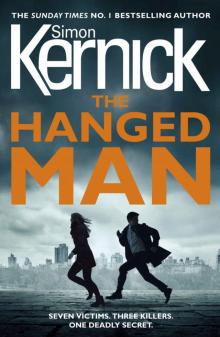 The Hanged Man (Bone Field 2)
The Hanged Man (Bone Field 2)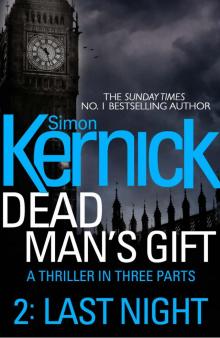 Dead Man's Gift 02 - Last Night
Dead Man's Gift 02 - Last Night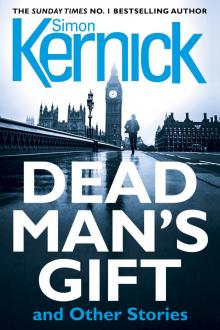 Dead Man's Gift and Other Stories
Dead Man's Gift and Other Stories A Good Day To Die
A Good Day To Die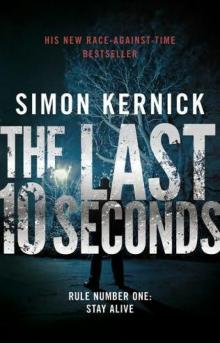 The Last 10 Seconds
The Last 10 Seconds The Murder Exchange
The Murder Exchange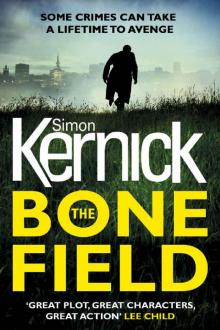 The Bone Field
The Bone Field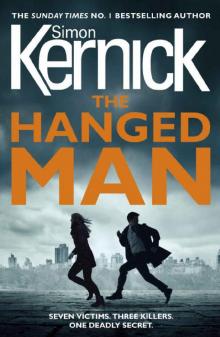 The Hanged Man
The Hanged Man Target
Target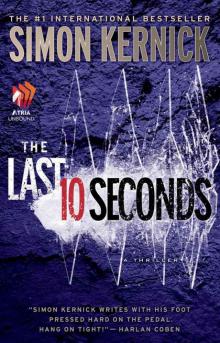 The Last 10 Seconds: A Novel
The Last 10 Seconds: A Novel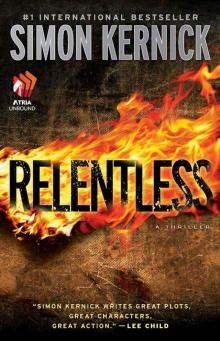 Relentless: A Novel
Relentless: A Novel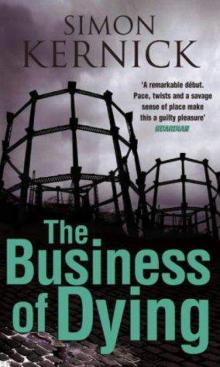 The Business Of Dying
The Business Of Dying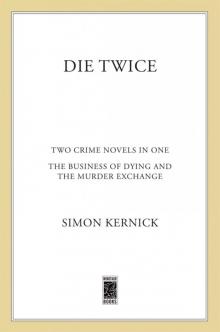 Die Twice
Die Twice Flytrap
Flytrap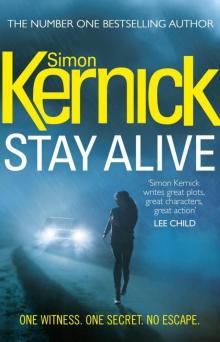 Stay Alive
Stay Alive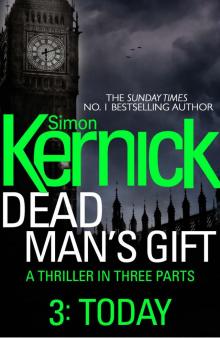 Dead Man's Gift 03 - Today
Dead Man's Gift 03 - Today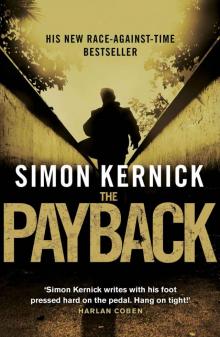 The Payback
The Payback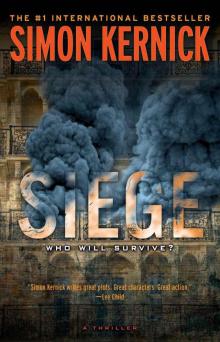 Siege: A Thriller
Siege: A Thriller The Crime Trade
The Crime Trade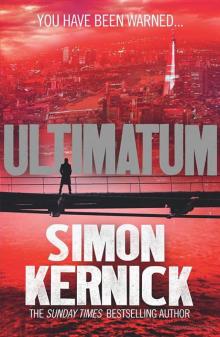 Ultimatum
Ultimatum